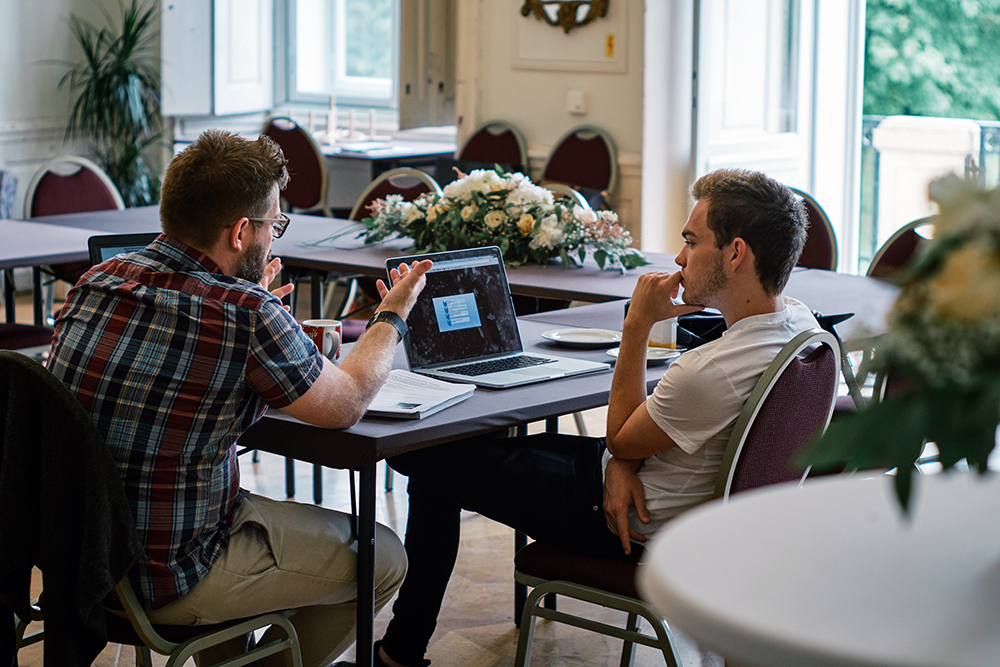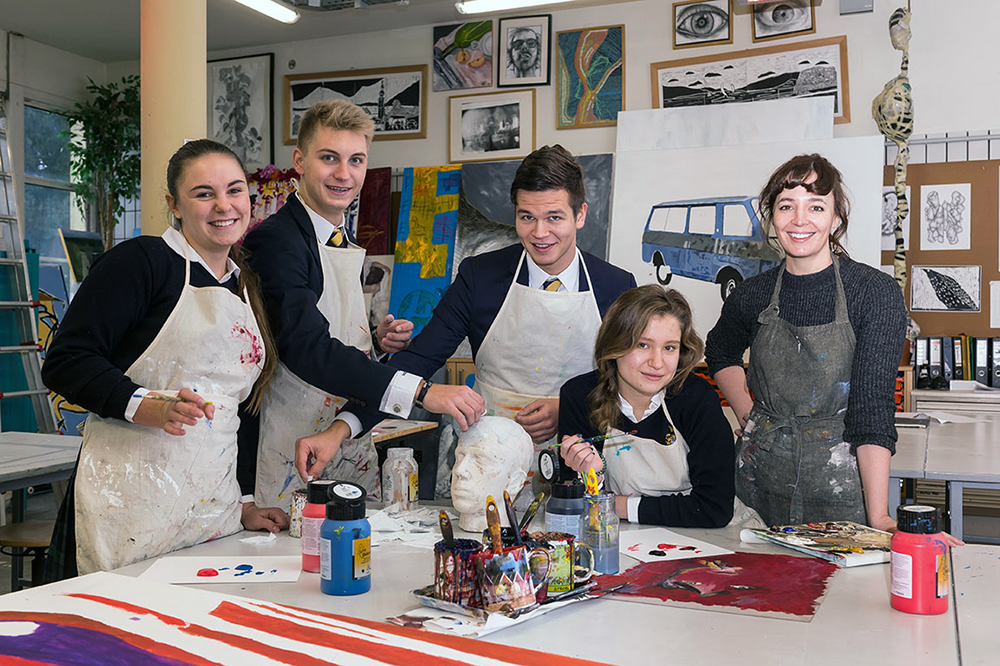Brief overview of the International Baccalaureate (IB) program
The International Baccalaureate (IB) program is a globally recognized educational framework. It offers a rigorous academic curriculum to students aged 16 to 19. The program emphasizes intellectual inquiry, critical thinking, and international-mindedness across a wide range of subjects.
These subjects include languages, sciences, humanities, and the arts. With its holistic approach to education, the IB program aims to develop well-rounded individuals. These individuals are equipped with the knowledge, skills, and attitudes needed to thrive in a rapidly changing world.
Explanation of the Creativity, Activity, Service (CAS) Component in IB
The Creativity, Activity, Service (CAS) component is an integral part of the IB program, designed to promote experiential learning and holistic personal development. Through CAS, students engage in a variety of activities that foster creativity, physical well-being, and social responsibility.
These activities encompass creative pursuits such as art, music, and drama; physical activities such as sports and outdoor adventures; and service projects that benefit the community.
Importance of CAS in IB
- How CAS Enhances the Overall IB Experience
CAS plays a crucial role in enhancing the overall IB experience by complementing academic studies with experiential learning opportunities. It provides IB students with a platform to explore their interests, passions, and talents outside the classroom, fostering personal growth and self-discovery.
Through Creativity, Activity, Service (CAS), students develop a sense of agency and responsibility, becoming active participants in their own education and contributors to their communities.
- Benefits of Participating in CAS Activities
Participating in CAS activities offers a multitude of benefits for students, both in terms of personal development and academic achievement.
Engaging in creative pursuits fosters self-expression, innovation, and problem-solving skills. Meanwhile, participation in physical activities promotes physical health, well-being, and teamwork. Additionally, involvement in service projects cultivates empathy, compassion, and a sense of social responsibility.
This empowerment enables students to make a positive impact on their communities. Overall, CAS activities enrich the IB experience by fostering a well-rounded approach to education. This approach values creativity, physical activity, and service to others.

Examples of Creativity, Activity, Service (CAS) Activities in IB
Participation in Creativity, Activity, Service (CAS) activities is a fundamental aspect of the International Baccalaureate (IB) program. It aims to provide students with opportunities for personal growth, experiential learning, and community engagement.
Here, we explore various examples of CAS activities within the IB framework. These include extracurricular activities, community service projects, and creative initiatives:
IB Extracurricular Activities:
- Sports Teams and Athletics: Joining sports teams such as basketball, soccer, swimming, or track and field provides students with opportunities to develop physical fitness, teamwork, and sportsmanship. Whether competing in local tournaments or representing the school in regional championships, participation in athletics fosters discipline, resilience, and a sense of camaraderie.
- Student Clubs and Organizations: IB students often participate in a variety of clubs and organizations, ranging from academic clubs like debate or Model United Nations to cultural clubs like language clubs or international student associations. These clubs offer students opportunities to pursue their interests, develop leadership skills, and engage with peers who share similar passions.
- Performing Arts Productions: Students interested in the performing arts can participate in school productions, including plays, musicals, and concerts. Whether acting on stage, playing musical instruments, or working behind the scenes in technical roles, involvement in performing arts productions allows students to express their creativity, build confidence, and collaborate with others in a creative environment.
Community Service Projects:
- Environmental Conservation Initiatives: Engaging in environmental conservation projects, such as tree planting, beach clean-ups, or recycling drives, allows students to contribute to the well-being of their local community and promote sustainability. These projects raise awareness about environmental issues and inspire action towards creating a eco-friendlier and more resilient environment.
- Tutoring and Mentoring Programs: Students can participate in tutoring and mentoring programs, where they provide academic support and mentorship to younger students or peers in need. These programs not only help improve academic outcomes but also foster empathy, leadership, and interpersonal skills.
- Supporting Vulnerable Populations: Students may choose to volunteer at local shelters, food banks, or community centres that serve vulnerable populations such as the homeless, elderly, or refugees. By offering assistance and companionship to those in need, students develop empathy, compassion, and a deeper understanding of social justice issues.
Creative Projects and Initiatives:
- Artistic Endeavours: Students interested in the arts can pursue creative projects such as painting, sculpture, photography, or graphic design. These projects allow students to express themselves artistically, explore different mediums and techniques, and develop their artistic talents.
- Music and Performance: Students passionate about music and performance can participate in activities such as playing in a band or orchestra, singing in a choir, or performing in talent shows or open mic nights. These activities provide opportunities for self-expression, collaboration, and stage presence.
- Innovative Projects: Students may choose to undertake innovative projects that address social or environmental challenges, such as designing a sustainable garden, creating an educational app, or organizing a fundraising event for a charitable cause. These projects encourage creativity, critical thinking, and problem-solving skills, while also making a positive impact on the community.
The examples of CAS activities within the IB framework encompass a diverse range of opportunities. These opportunities allow students to engage in meaningful experiences, develop essential skills, and make positive contributions to their communities.
Whether participating in extracurricular activities, community service projects, or creative initiatives, students have the opportunity to explore their interests. Additionally, they can expand their horizons and grow as individuals.
Through Creativity, Activity, Service (CAS) activities, IB students are not only preparing for academic success. They are also cultivating a lifelong commitment to learning, service, and personal development.

Impact of Creativity, Activity, Service (CAS) on Personal Development
Participation in Creativity, Activity, Service (CAS) activities within the International Baccalaureate (IB) program has a profound impact on students’ personal development, shaping their character, skills, and values.
Here, we explore the transformative effects of CAS on critical thinking and problem-solving skills, leadership and teamwork abilities, and the cultivation of a sense of social responsibility and global citizenship:
Development of Critical Thinking and Problem-Solving Skills:
Engaging in CAS activities provides students with opportunities to develop critical thinking and problem-solving skills in real-world contexts.
Whether designing an environmental sustainability project, organizing a fundraising event, or participating in a debate club, students are challenged to analyze complex issues. Additionally, they evaluate multiple perspectives and develop innovative solutions. Through Creativity, Activity, Service (CAS), students learn to think creatively and approach challenges with resilience. Moreover, they adapt their strategies based on feedback and reflection.
For example, a student involved in a community garden project may encounter logistical challenges such as soil quality or irrigation systems. Consequently, the student must critically assess the situation. They must research potential solutions and collaborate with teammates to implement effective strategies.
By navigating these challenges, IB students develop confidence in their ability to tackle real-world problems. This experience enables them to make meaningful contributions to their communities
Building Leadership and Teamwork Skills:
CAS activities offer valuable opportunities for students to develop leadership and teamwork skills. These experiences prepare them for success in academic, professional, and personal contexts. Whether serving as a team captain in a sports team, leading a community service project, or coordinating a fundraising campaign, students learn crucial skills.
They learn to communicate effectively, delegate tasks, and inspire others towards a common goal. Through collaborative teamwork, students gain appreciation for diverse perspectives. Additionally, they learn to leverage individual strengths and cultivate empathy and mutual respect.
For instance, a student leading a fundraising initiative for a local charity must collaborate with teammates to plan events. They also need to coordinate logistics and mobilize support from the community. In this role, the student learns to delegate responsibilities and communicate effectively with team members.
Moreover, they adapt their leadership style to different situations. By working together towards a shared objective, students develop trust, camaraderie, and a sense of collective achievement. This teamwork lays the foundation for future success as leaders and team players.
Fostering a Sense of Social Responsibility and Global Citizenship:
Participation in CAS activities fosters a sense of social responsibility and global citizenship. It encourages students to become active agents of positive change in their communities and beyond. Whether volunteering at a local soup kitchen, advocating for environmental sustainability, or raising awareness about global issues, students develop empathy and compassion.
Moreover, they commit to making a difference in the world. Through service to others, students gain a deeper understanding of social justice issues. They also learn about cultural diversity and the interconnectedness of global challenges.
For example, a student involved in a community service project to support refugees may engage in activities such as language tutoring, cultural exchange events, or fundraising campaigns. These activities provide essential resources. Through these experiences, the student learns to empathize with individuals from different backgrounds. They also advocate for marginalized communities and take action to address systemic injustices.
By promoting social cohesion and solidarity, CAS activities empower students to become active citizens. These citizens contribute positively to society and work towards a more equitable and sustainable future.
Creativity, Activity, Service (CAS) plays a vital role in shaping students’ personal development within the IB program. It provides them with opportunities to develop critical thinking and problem-solving skills. Additionally, it helps build leadership and teamwork abilities and fosters a sense of social responsibility and global citizenship.
Through meaningful engagement in CAS activities, students not only acquire valuable skills and competencies but also cultivate a sense of purpose, empathy, and resilience. This will serve them well throughout their lives. By encouraging students to actively participate in CAS activities, schools promote holistic education.
This preparation helps students to become ethical, compassionate, and socially engaged individuals. They contribute positively to their communities and the world at large.
Tips for Successfully Completing Creativity, Activity, Service (CAS) in IB
Participating in Creativity, Activity, Service (CAS) activities is an essential component of the International Baccalaureate (IB) program, offering students opportunities for personal growth, experiential learning, and community engagement.
Successfully completing CAS requires effective time management strategies, a balance between CAS and academic work, and seeking guidance and support from CAS supervisors. Here are some tips to help students navigate the challenges and maximize their experience with CAS in the IB program:

Time Management Strategies:
- Set Clear Goals: Begin by setting clear and achievable goals for your CAS activities, including specific objectives, timelines, and desired outcomes. Break down larger tasks into smaller, manageable steps to avoid feeling overwhelmed.
- Prioritize and Schedule: Prioritize your CAS activities based on their importance and deadlines, and create a schedule or calendar to allocate time for each activity. Be realistic about your commitments and allow for flexibility to accommodate unexpected changes or challenges.
- Use Time Wisely: Make the most of your time by identifying pockets of time throughout the day where you can engage in CAS activities, such as during breaks between classes, after school, or on weekends. Avoid procrastination and use downtime productively to make progress towards your CAS goals.
- Stay Organized: Keep track of your CAS activities, deadlines, and reflections using a journal, planner, or digital tracking tool. Use reminders and checklists to stay organized and ensure that you are meeting your commitments and deadlines.
- Reflect and Adjust: Regularly reflect on your progress, challenges, and achievements in your CAS activities, and adjust your schedule and goals as needed. Identify areas for improvement and explore strategies to overcome obstacles or enhance your effectiveness in completing CAS activities.
Balancing Creativity, Activity, Service (CAS) with Academic Work:
- Establish Boundaries: Set boundaries between your academic work and CAS activities to ensure a healthy balance and prevent burnout. Allocate dedicated time for studying, homework, and coursework, and prioritize academic deadlines when necessary.
- Integrate CAS into Your Routine: Look for opportunities to integrate CAS activities into your daily routine or academic coursework, such as incorporating service-learning projects into class assignments or using creative projects as outlets for self-expression and reflection.
- Manage Workload: Be mindful of your workload and avoid overcommitting yourself to Creativity, Activity, Service (CAS) activities at the expense of academic performance. Strike a balance between challenging yourself and maintaining a manageable workload that allows you to excel academically while still actively participating in CAS.
- Communicate with Teachers: Keep your teachers informed about your involvement in CAS activities and any scheduling conflicts or challenges you may encounter. Seek their support and guidance in managing your workload and finding ways to integrate CAS into your academic studies.
- Practice Self-Care: Prioritize self-care and well-being to maintain balance and resilience amidst the demands of CAS and academic work. Take breaks when needed, prioritize sleep and nutrition, and engage in activities that promote relaxation and stress relief.
Our Take
At Study Academy Vienna, we provide CAS sessions during both the Summer IB Courses and throughout the year. Consequently, this offers students continuous support and guidance in fulfilling their CAS requirements. Furthermore, we offer various opportunities for students to engage in CAS projects.
These opportunities enable them to explore their interests, develop skills, and make meaningful contributions to their communities. Through our comprehensive CAS program, we strive to empower students.
Specifically, we aim to help them embrace experiential learning, personal growth, and community engagement as integral components of their IB education.